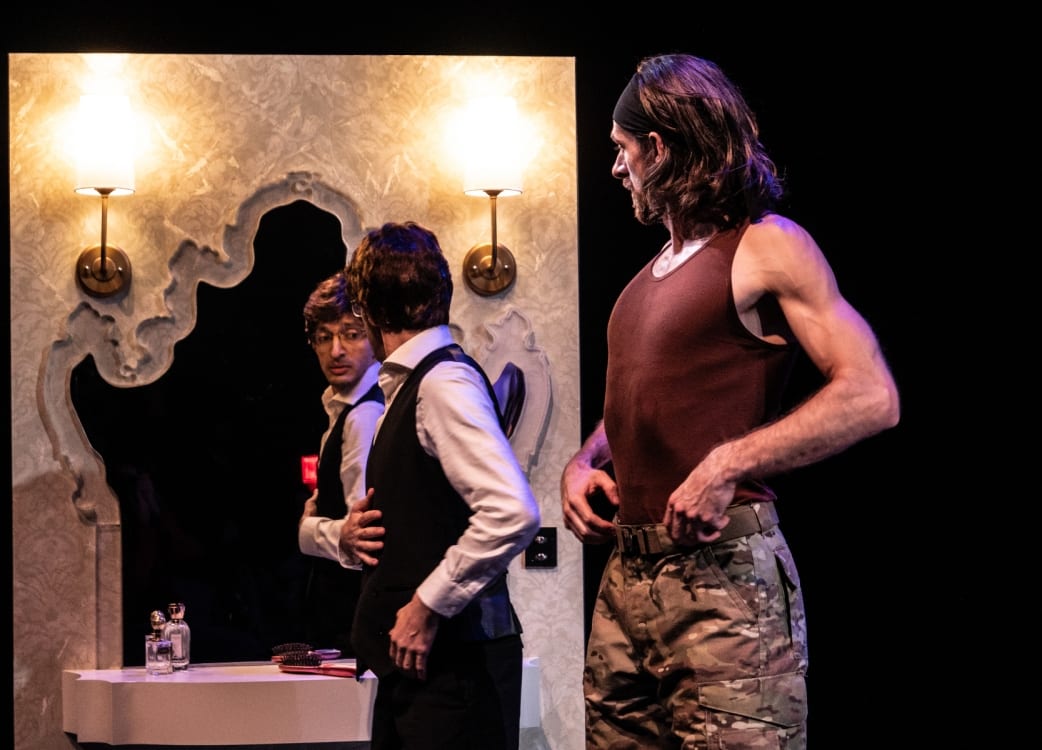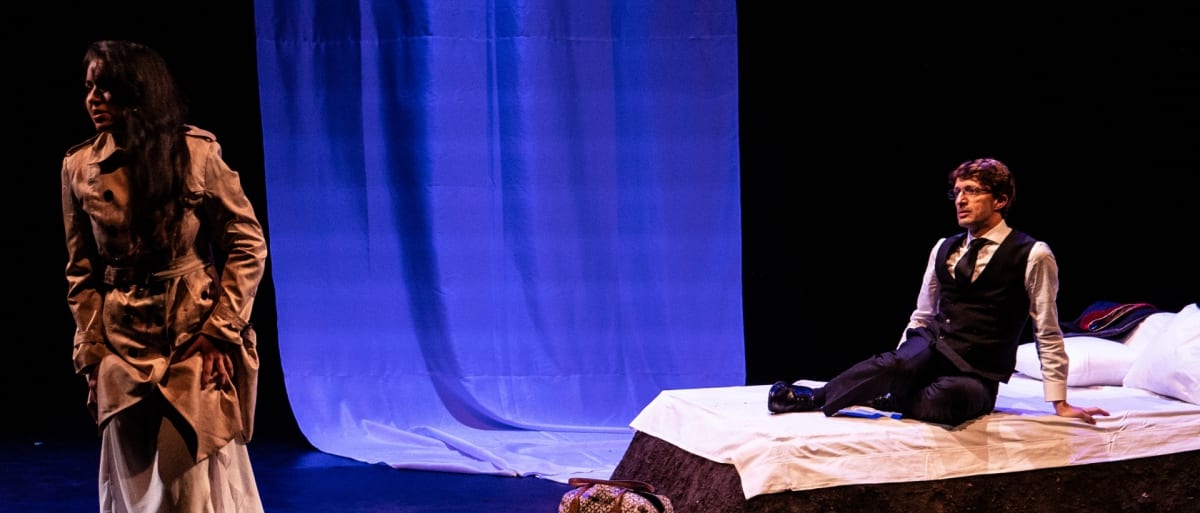Hercules: In Search of a Hero, adapted and directed by Ioanna Katsarou, tackles the intimidating and lesser-known works of Euripides – Alcestis and Hercules. Katsarou weaves these two “problem play” tragedies together to create one larger dramatic, though often convoluted, story.
The two central characters meet during the course of the first story, Alcestis. Alcestis is the young and beautiful wife of King Admetos, and she is preparing for her last day among the living. King Admetos (Demetri Bonaros) had been promised by the god Apollo that he may cheat death if another will go in his place. But when the day comes, not even his parents will volunteer to do this for him. Only Alcestis (Luisa Alarcón), the mother of Admetos’s children, vows to die for him – after making him promise never to remarry.
When Hercules (played by the swaggering Luke Couzens) drops by the palace of his old friend Admetos and sees the man and his entire kingdom mourning for the lost queen, he vows to wrestle Death and bring Alcestis back from the dead. But as the story of Alcestis rolls into the tragedy of Hercules, we see that the consequences of the hero’s braggadocious promises are more than even he, the almighty demigod, can handle.

Katsarou’s exploration of these two fascinating Euripidean epics is compelling. The set is well done, creating a vivid backdrop for the characters, from a child’s bedroom to a dive bar, and a simple sequence of graphics – chapter titles, video, and at one point, real-time Greek-to-English translations – adds an extra dimension. However, much of the show is murky and hard to follow. The dialogue, most of which is lifted from a translation of the original text, is stiff and awkward, and the actors never fully master it. And none of the characters are fleshed out to the extent one might wish for, with the possible exception of Hercules. We spend too little time with Alcestis herself, though Luisa Alarcón plays her with a very intriguing flintiness that suggests the resolve of a more modern heroine. And a character listed merely as “Goddess” in the playbill is portrayed very alluringly by Alexandra Skendrou, though her purpose is frustratingly unclear until a climactic scene towards the end.
But there are moments where the play can be truly captivating. In a dreamlike sequence, Hercules is brought to his knees and made to bow to the power of the gods. The unnamed Goddess and the personification of Madness seem to throw a veil of actual madness, not just over Hercules, but over the whole room. They speak rapidly in Greek, reciting the Euripidean lines as though they are speaking in tongues. It is quite mesmerizing. And in an added epilogue, a wholly mysterious but thoroughly pleasing liberation is finally given to the long-suffering Alcestis.
With careful examination, the messages woven into the play by Euripides and by Katsarou after him are powerful ones. There is a display of the fragility, and sometimes futility, of masculinity – both the macho-man brand of Hercules and the cowardly, self-preservational brand of Admetos. There is a suggested dialogue on the sacrifices expected of women. And there is something enthralling about how Katsarou sets Alcestis, the pinnacle of virtue, against the vulgar braggart Hercules, only to see him utterly defeated. Unfortunately, this all gets somewhat muddled in the execution.

